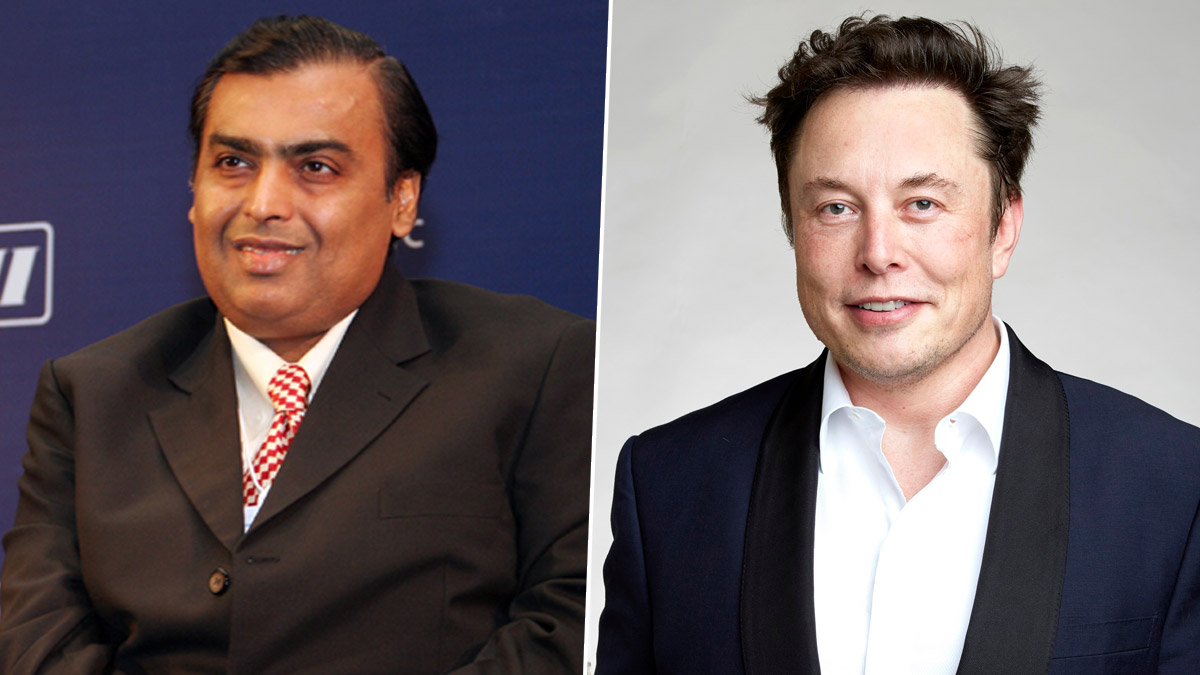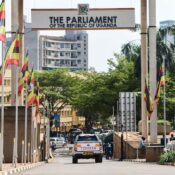
Musk’s victory over Ambani over satellite spectrum in India increases the likelihood of a pricing war
Asia’s richest man, Mukesh Ambani, recently lost a battle with Elon Musk for the allocation of India’s satellite spectrum. However, if Musk’s Starlink provides services in India and the two companies compete on price, Ambani may face a more formidable obstacle.
Hours after Musk denounced the auction process being pursued by rival billionaire Ambani as “unprecedented,” the Indian government said on Tuesday that it would distribute spectrum for satellite broadband administratively rather than through an auction.
Musk’s Starlink, a SpaceX subsidiary with 6,400 operational satellites orbiting the planet to offer 4 million users low-latency broadband, has openly stated interest in launching in India; however, regulatory obstacles have repeatedly thwarted its aspirations.
Since last year, Ambani, the CEO of Reliance Jio, the largest telecom operator in India, has worked to create a “balanced competitive landscape” and keep Musk at bay. According to experts, a spectrum auction would have required far more funding and discouraged international competitors.
According to a person with direct knowledge, Reliance, which has long controlled the telecom market in India, is now worried that after investing $19 billion in airwave auctions, it may lose internet subscribers to Musk. As technology develops, it may also lose data and phone customers.
The Indian government claims that their choice to administratively distribute spectrum to the first applicant is consistent with worldwide patterns.
Musk’s Starlink has already applied for the required permissions, but it has not specified when the process will begin. Pricing would become a new arena of conflict between the two billionaires as a result of Starlink’s entry into the Indian market.
While Reliance has teamed with Luxembourg-based SES Astra, which non-profit CelesTrak claims has 38 satellites that Reliance intends to use, Musk has thousands of operating satellites.
According to Tim Farrar, a satellite industry expert at TMF Associates in the United States, “Starlink can price aggressively because it doesn’t need to add more satellites.”
Although Musk is accustomed to using such techniques, which might upset local players, Ambani once provided data on his mobile contracts for free.
While rental options are available for larger hardware costs, Musk priced Starlink at $10 per month in Kenya compared to $120 in the US. In a July complaint to local authorities, Kenya’s Safaricom (SCOM.NR) demanded that companies like Starlink be forced to collaborate with mobile networks rather than function on their own.
India’s potential
In India, a high-speed, fiber-based broadband package from Reliance Jio costs $10 a month; long-term plans include a free router. In the wired broadband market, it holds a 30% market share.
According to a second industry source with knowledge of the situation, Starlink intends to target corporate clients and first provide an unlimited internet data plan in India.
Questions from Reuters were not answered by Reliance or Starlink.
India is the world’s second-largest telecom market after China, with 904 million users on 4G and 5G networks and 42 million users on wired broadband internet.
According to DataReportal, as of early 2024, 52.4% of Indian villages had internet access, and 25,000 more still lacked it. Additionally, fiber-based fast internet is not available in many places, even in urban regions.
Last year, Musk claimed that Starlink “can be incredibly helpful” in isolated Indian villages or locations without high-speed internet. In 2022, his previous CEO of India stated that Starlink aimed to reach 200,000 users within eight months of its start.
In order to provide “direct to cell” telephony and data services in the upcoming years, Starlink has also revealed intentions to launch a constellation of hundreds of satellites worldwide.
However, some of the concerns over Musk may be exaggerated, according to Gareth Owen, associate director at research firm Counterpoint, as “terrestrial networks will always be less expensive (and) businesses will never switch completely to satellite.”
For now, the Musk-Ambani rivalry is becoming more visible even before the actual conflict begins on the ground.
Musk was alerted to a Reuters story this week that stated Ambani was once more urging New Delhi to sell satellite frequency for a “level playing field” after someone on social media questioned whether Ambani was afraid that Musk might upend the Indian billionaire’s telecom business.
In response, Musk jokingly wrote on X, “I will call (Ambani) and ask if it would not be too much trouble to allow Starlink to compete to provide internet services to the people of India.”
All Categories
Recent Posts
Tags
+13162306000
zoneyetu@yahoo.com



